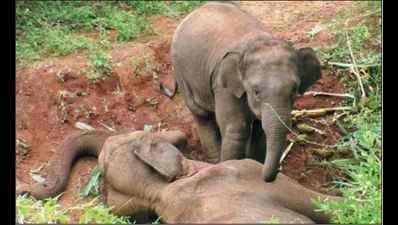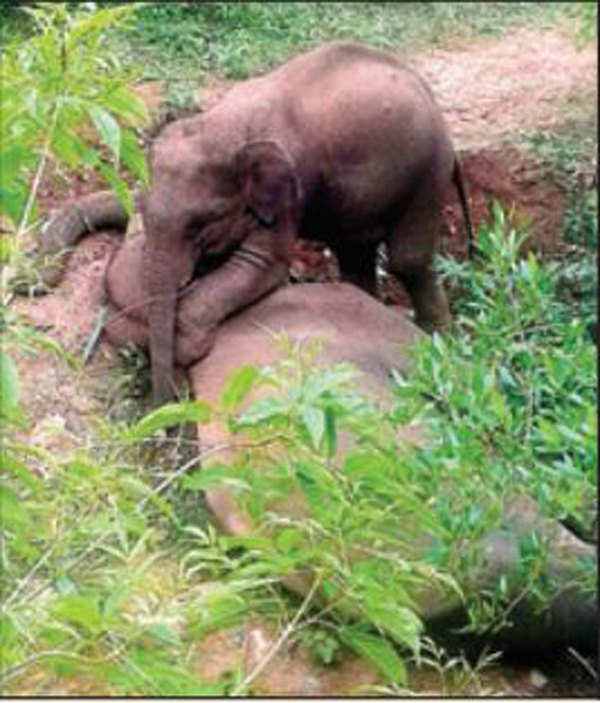The calf cried next to her dead mother’s body and refused to leave her body.The baby elephant has been with his mother for 3 days now, he cries and often uses his head and trunk to hit his mother’s trunk, the response is hopeless silence. It’s hungry for breast milk! The picture is not really sad for those who see it.

The dead elephant’s cub did not leave its mother’s side in Coimbatore.
Much to the shock of wildlife lovers news about yet another elephant circulated in social media on Tuesday. With the demise of the female elephant in Boluvampatti Range in Coimbatore, the death toll of jumbos in state climbed to five in the last 15 days.Heartbreaking photos of a calf crying and guarding his dead mother surfaced on the social media.
The 20-year-old female elephant had died of illness near Narasipuram village in Coimbatore on Tuesday morning.Coimbatore-based conservationist K Mohan Raj said the forest department should take a long-term study and find out the ecological reasons which forced the wildlife, especially elephants, to migrate from their habitats and come closer to villages.

The calf crying beside his mother’s body.Renowned biologist and Indian Institute of Sciences professor Raman Sukumar has a different view to offer about elephant deaths. He said it was not unusual for female elephants to die of natural causes. One can expect about 2% of subadult and adult female elephants to die every year on an average. Given Tamil Nadu’s elephant population of about 4,000 (as per 2012 estimate), about 60% or 2,400 of these would be subadult and adult female elephants, he said.
About 50 elephants of this age group are prone to deaths due to natural causes, he said, adding, additional elephant deaths can even happen due to age-related diseases.”We should also remember that 2015 was a drought year. The impact of this drought is still being carried over, which could have been one of the causes of death,” he said.Illegal dumping of garbage close to forest areas and elephant corridors could also be behind frequent elephant deaths.
Garbage can upset the digestive system of the animal, said another activist. “Of late garbage collected from villages are dumped near forest areas. For instance, in the Gudalur forest area, environmentalists recently took picutures of a small herd of wild elephants feeding on garbage. The waste was dumped near the forest area and on paths used by the elephants,” he said.